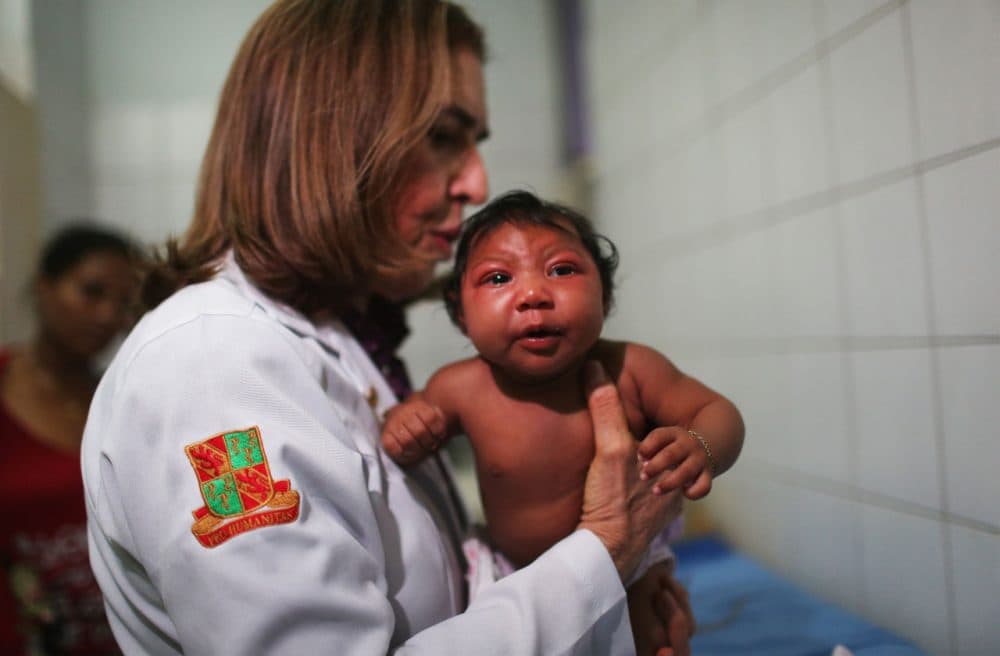Advertisement
President Obama Calls For Urgent Action, More Research On Zika Virus
Resume
President Obama is calling for urgent action and research into the Zika virus, which is now active across much of Latin America and the Caribbean.
Zika is a mosquito-borne illness that is particularly dangerous for pregnant women, as it can cause serious birth defects in babies, including a condition called microcephaly, in which babies are born with small heads and under-developed brains.
The CDC is now warning women who are pregnant or planning to become pregnant to avoid travel or take precautions in the nearly two dozen countries with Zika virus.
Here & Now's Jeremy Hobson talks with Helen Branswell, who covers infectious diseases and public health for STAT, the new national health and medicine publication, about what is known and not yet known about Zika, and what people can do to protect themselves.
Guest
- Helen Branswell, infectious diseases and public health reporter for STAT. She tweets @HelenBranswell.
This segment aired on January 27, 2016.